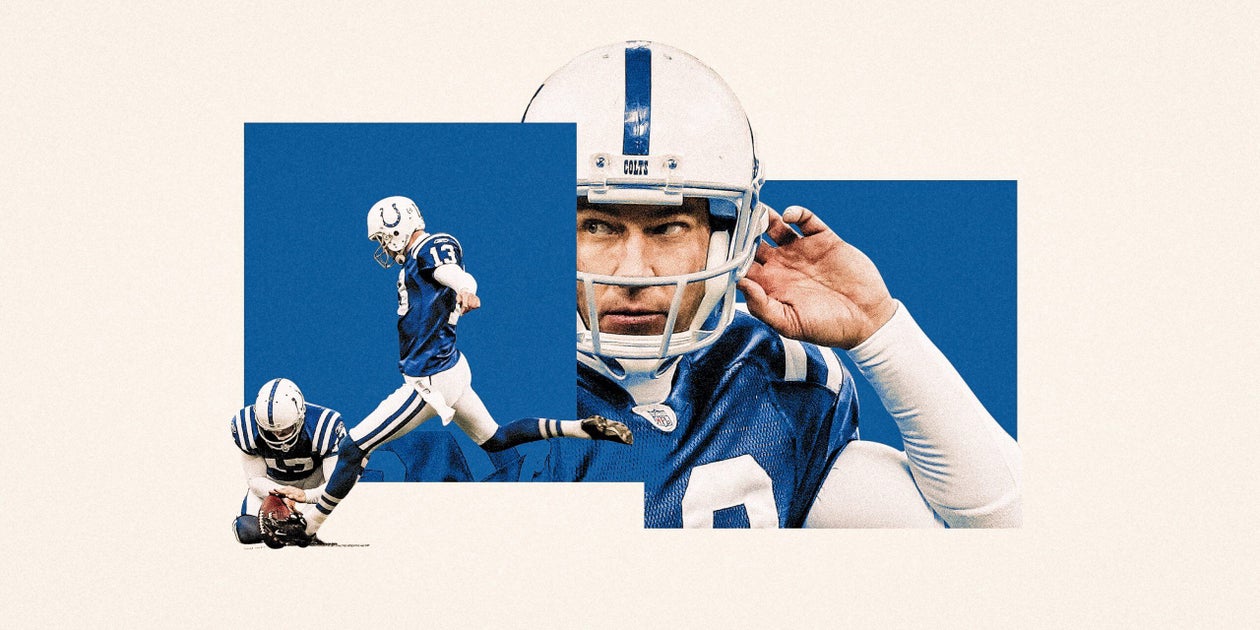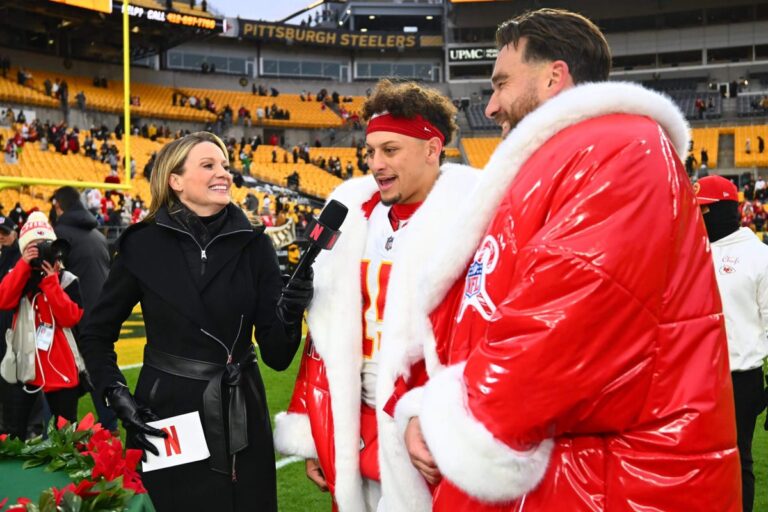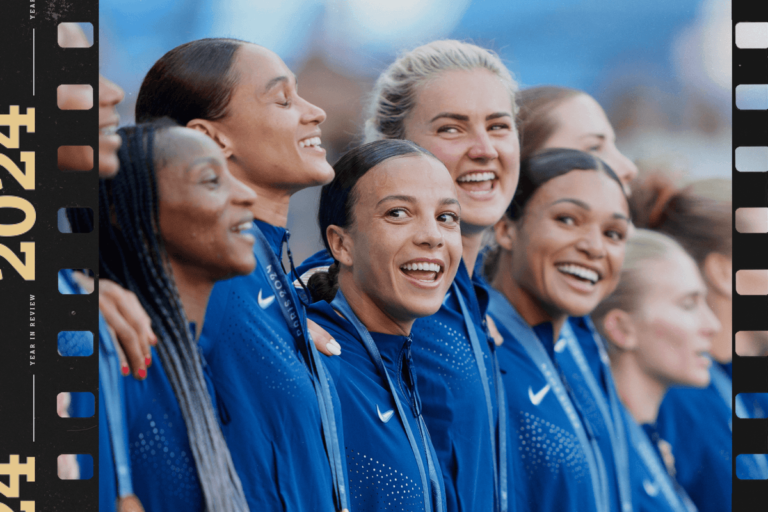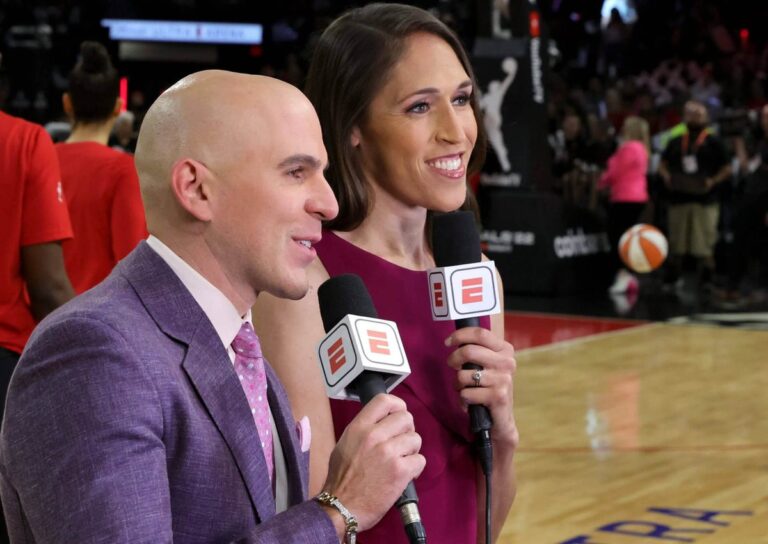Here is the text without any added lines or formatting:
He wore spandex sleeves, highlights in his hair and a diamond stud in his ear. He once called himself “the best kicker in history” and had the numbers to back it up. Before games, he used to slip a dollar bill under his wristband.
“Because I was money,” Mike Vanderjagt says.
He’d chirp at coaches on the practice field — “Left half or right half?” — because simply splitting the uprights for an hour straight was too easy. “Boring,” he called it.
As a soccer phenom, he nearly made the Canadian U-18 national team; as a quarterback, he earned a scholarship to Michigan State; as a kicker, he was cut three times in the CFL and once in the Arena League.
Then he landed a tryout with the Indianapolis Colts and stayed eight years. He married a Colts cheerleader. He got a Colts tattoo on his left shoulder. He lit up reporters’ microphones with soundbites that stirred headlines and sometimes got him in hot water.
But you can get away with that when you’re the best in the league, and in the early 2000s, Vanderjagt was, clutch and cocky and unapologetic about it. He led the NFL in scoring in 1999. Four years later, he was the first kicker in history to finish a full season without a miss: 83 of 83 on field goals and extra points. He used to taunt the opposing sideline before game-winners, rubbing his thumb over his index finger — he was money, remember.
“It took 20 years for someone to retire above me,” he says, a nod to his 86.5 career make percentage. “I mean, 81.8 was the best at the time … I was miles ahead. I raised the standard.”
He was. He did. But today Vanderjagt has no relationship with the team he left as its all-time leading scorer.
“Let’s be honest,” he says, “clearly, I should be in the Ring of Honor.”
But he’s not. And he’s never going to be. And plenty of it has to do with one afternoon in January 2006.
“Whatever you do, don’t be a kicker,” Vanderjagt warned his son a few years back. “Because no matter how good you are, they’ll only ever remember you for the ones you miss.”
Especially in the playoffs.
He thinks he could’ve been more. Vanderjagt once went 21 months without missing in an NFL game. He was a Pro Bowler and a first-team All-Pro. He retired with the best field goal percentage in league history.
Still.
“I had a lot more to offer than just being a kicker,” he says. “That’s just how I feel.”
As a high school senior in Ontario, he averaged 31 points a game on the basketball court. “And that was without a 3-point line,” he notes. On the soccer field, he was one of the best young goalies in Canada, the last cut of the U-18 national team. At one point, his mom weighed sending him to Europe to train. “In hindsight, I wish she had,” he says. Vanderjagt believes he would’ve made it.
Instead, he took that scholarship to Michigan State, showed up to the first practice and realized he wasn’t going to last. “That was big-boy football,” he says. He landed at a junior college in California, but the program folded a year later. Realizing his future rested in kicking and not quarterbacking, he transferred to West Virginia and, before his senior year, was drafted into the CFL. He was cut four times in four years, including by the Arena Football League’s Minnesota Fighting Pike.
Then, in the summer of 1998, after two years and two Grey Cups with the Toronto Argonauts, he got a shot with the Colts. Something clicked. His motion was smooth, almost effortless, honed from all those years booting soccer balls.
“I feel like I was in the zone for seven of my eight years in Indy,” Vanderjagt says. “I wasn’t technically minded at all. They just put the ball down and I kicked it through.”
He landed in Indy at the right time. The Colts were taking off. Future Hall of Famers Peyton Manning, Edgerrin James and Marvin Harrison were inching into their primes, and Vanderjagt became another offensive weapon. He oozed confidence on the sideline, especially when the score grew tight in the fourth quarter. He knew the team’s belief in him hinged on his belief in himself. He couldn’t let them see him sweat. So he never did.
One night in Denver late in the 2002 season, the Colts were down three but driving late in the fourth quarter. Snow blanketed the grass. The wind whipped. Vanderjagt stared out at a field he couldn’t see.
“Can you make it?” Tony Dungy asked him.
“Of course I can make it,” Vanderjagt told his coach.
“All right, field goal,” Dungy decided.
“I’m like, ah sh—,” Vanderjagt says, laughing at the memory.
He could barely make out the uprights, but he was good from 54 yards. Overtime. Moments later, the Colts were driving again. “Do you wanna win?” Vanderjagt asked Dungy, pleading for another attempt. “Or do you wanna keep playing?”
Dungy wanted to win. Vanderjagt was good from 51.
To that point, no kicker in history had ever made kicks from 50-plus to send a game into overtime, then win it. Vanderjagt had done so in a blizzard.
He gave the Colts the swagger they needed as they climbed into the Super Bowl conversation. Vanderjagt became the best in the league, finishing at higher than 85 percent in six of his eight seasons in Indianapolis. Off the field, he started a charity and visited children’s hospitals. He used to hit the bars with James and Reggie Wayne. (Years later, Vanderjagt opened a restaurant.)
Even then, down three with under a minute left, Manning got greedy, taking two deep shots to Wayne from the Steelers’ 28-yard-line. On the second, a dump-off to a wide-open James would’ve likely gotten the Colts down to the Steelers’ 15. Instead, Vanderjagt was left with a 46-yarder.
Still, it was a kick he should have made. And he wasn’t close. Inside a stunned locker room, Vanderjagt stood at his stall and waited for reporters. He knew he had to own it.
“I don’t make any excuses about anything,” he said.
A few days later, Colts’ PR chief Craig Kelley passed along an unusual request: “The Late Show with David Letterman” wanted Vanderjagt to come on as a guest. “You go on that show and you’re not coming back,” Vanderjagt remembers team president Bill Polian warning him.
Vanderjagt was an impending free agent. He figured after the Pittsburgh miss, his days in Indy were numbered. So not only did he go on the show, but also he kicked a 46-yard field goal on the streets of New York City with Letterman holding. This time, he made it.
“No regrets whatsoever,” Vanderjagt says.
Polian was irate.
“They weren’t bringing me back,” Vanderjagt says. “When you listen to Bill Polian’s radio show the day after the game and you’re the most accurate kicker in history and you get thrown under the bus for why we lost, you’re just like, ‘I deserve better.’ Listen, I needed to go somewhere else. It was a Bill Polian thing. I’m just not a very good ass-kisser. I’m not good at being fake.
“But hey, had I stayed, I probably wouldn’t have been any good anyway.”
That’s because, by that point, Vanderjagt wasn’t the same. He likens it to a golfer fighting his swing, unable to find the fairway no matter how much he tinkers with it.
Two days after the Colts signed Adam Vinatieri to replace him, Vanderjagt agreed to a three-year deal with the Cowboys. But he missed five kicks early in the 2006 season and was cut after Week 12. A few NFL tryouts the following year went nowhere. He was finished.
Vanderjagt didn’t watch much of the Colts’ Super Bowl run in the winter of 2007. It still stung. He’d been a part of the climb but didn’t make it to the summit. When he learned that owner Jim Irsay gifted James — who also left the organization after the 2005 season — a Super Bowl ring a few months after the championship, Vanderjagt was thrilled. He loves Edgerrin.
But he couldn’t help but wonder why he didn’t get one as well.
Vanderjagt didn’t watch much of the Colts’ Super Bowl run in the winter of 2007. It still stung. He’d been a part of the climb but didn’t make it to the summit. When he learned that owner Jim Irsay gifted James — who also left the organization after the 2005 season — a Super Bowl ring a few months after the championship, Vanderjagt was thrilled. He loves Edgerrin.
These days, he lives in upstate New York and coaches special teams at the local high school. In the offseason, he trains aspiring kickers, two of whom made it to NFL training camps this summer. He’s also a motivational speaker who built a million-dollar business in sports graphics.
And Vanderjagt — who’s still eighth all-time in field goal percentage — says he gets fan mail every day.
“Every day,” he insists. “And nobody mentions the one kick. Outside of Indianapolis, I’m not known for one kick.”
The miss against the Steelers doesn’t haunt him. He refused to let one miss stain eight stellar seasons. “Look, there are kicks I’d like to have back, and Pittsburgh is certainly one of them,” he says. “But it’s one kick in a long career where I made a sh– ton of big ones. It just happened to be at the end. It wasn’t an exclamation point on a bad career — it was a blip on the radar.”
Still, it strained his relationship with the Colts. Vanderjagt says he hasn’t heard from Irsay or anyone in the organization since he left almost 20 years ago. “But I don’t know how many ex-players do,” he says.
The answer is plenty. Ten of Vanderjagt’s former teammates have been inducted into the team’s Ring of Honor since 2011. Plenty more are invited back to home games every season.
When Dwight Freeney went into the Hall of Fame last August, Vanderjagt sent him a congratulatory text. “Appreciate the invite,” he joked at the end. Freeney was surprised. He’d told the Colts to invite every one of his former teammates to come celebrate with him in Canton. Vanderjagt, who nominated himself for the Hall of Fame each of the past two years, didn’t hear a thing.
“You were a great teammate, Mike,” Freeney wrote back.
So for Vanderjagt, his focus rests with the young kickers he coaches. The aim is simple: he wants to help them earn college scholarships. Some of the kids marvel at his old stats. Some can’t believe his “Madden” rating. “I was a 99 one year,” Vanderjagt boasts. “They couldn’t get over that.”
More than anything, Vanderjagt works to sharpen their resolve. The position can be the loneliest in football, unceasing in expectation but unforgiving in failure. He knows better than most. Miss a big one and all the makes seem to disappear.
Source link




